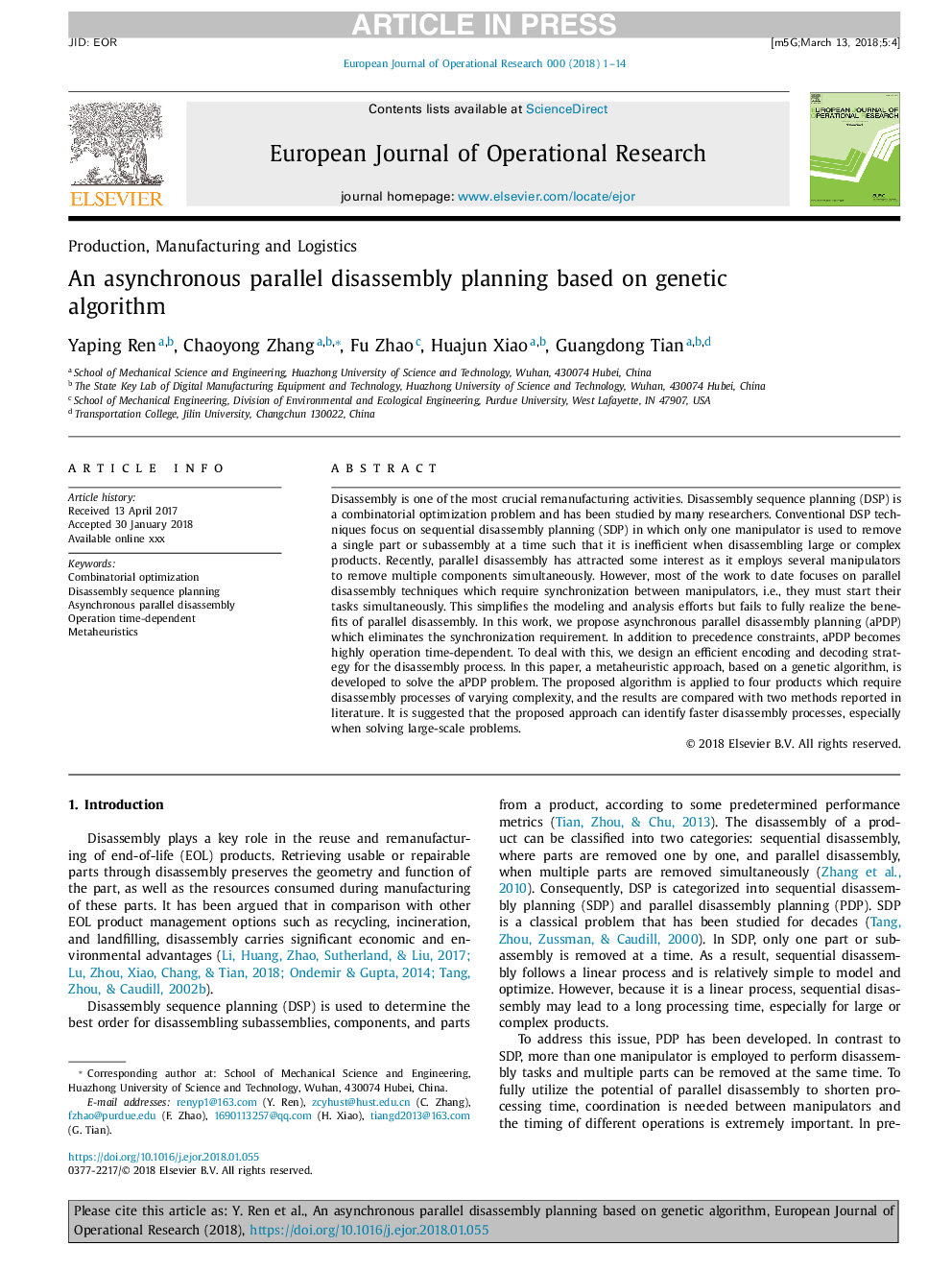| Article ID | Journal | Published Year | Pages | File Type |
|---|---|---|---|---|
| 6894721 | European Journal of Operational Research | 2018 | 14 Pages |
Abstract
Disassembly is one of the most crucial remanufacturing activities. Disassembly sequence planning (DSP) is a combinatorial optimization problem and has been studied by many researchers. Conventional DSP techniques focus on sequential disassembly planning (SDP) in which only one manipulator is used to remove a single part or subassembly at a time such that it is inefficient when disassembling large or complex products. Recently, parallel disassembly has attracted some interest as it employs several manipulators to remove multiple components simultaneously. However, most of the work to date focuses on parallel disassembly techniques which require synchronization between manipulators, i.e., they must start their tasks simultaneously. This simplifies the modeling and analysis efforts but fails to fully realize the benefits of parallel disassembly. In this work, we propose asynchronous parallel disassembly planning (aPDP) which eliminates the synchronization requirement. In addition to precedence constraints, aPDP becomes highly operation time-dependent. To deal with this, we design an efficient encoding and decoding strategy for the disassembly process. In this paper, a metaheuristic approach, based on a genetic algorithm, is developed to solve the aPDP problem. The proposed algorithm is applied to four products which require disassembly processes of varying complexity, and the results are compared with two methods reported in literature. It is suggested that the proposed approach can identify faster disassembly processes, especially when solving large-scale problems.
Related Topics
Physical Sciences and Engineering
Computer Science
Computer Science (General)
Authors
Ren Yaping, Zhang Chaoyong, Zhao Fu, Xiao Huajun, Tian Guangdong,
